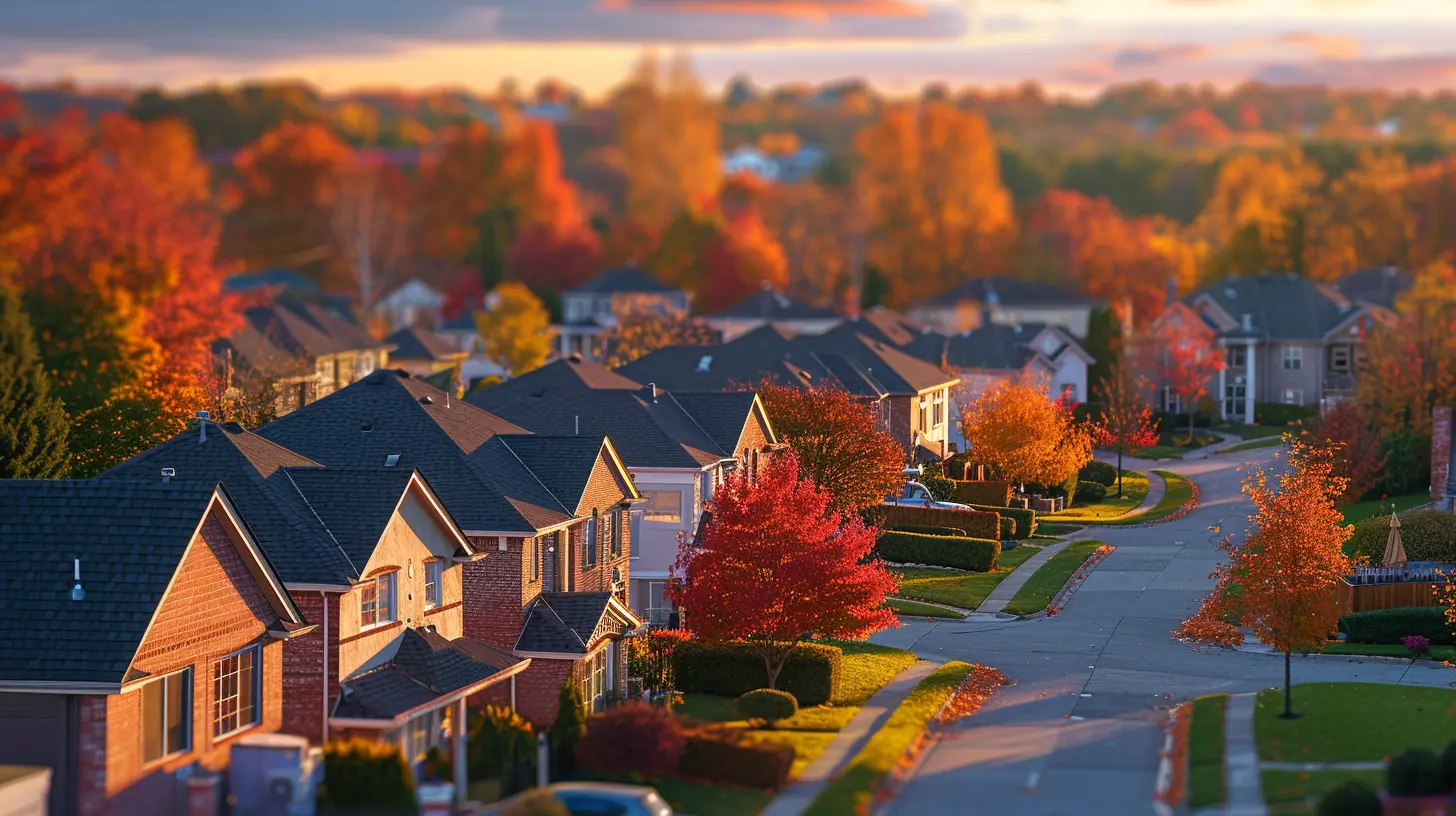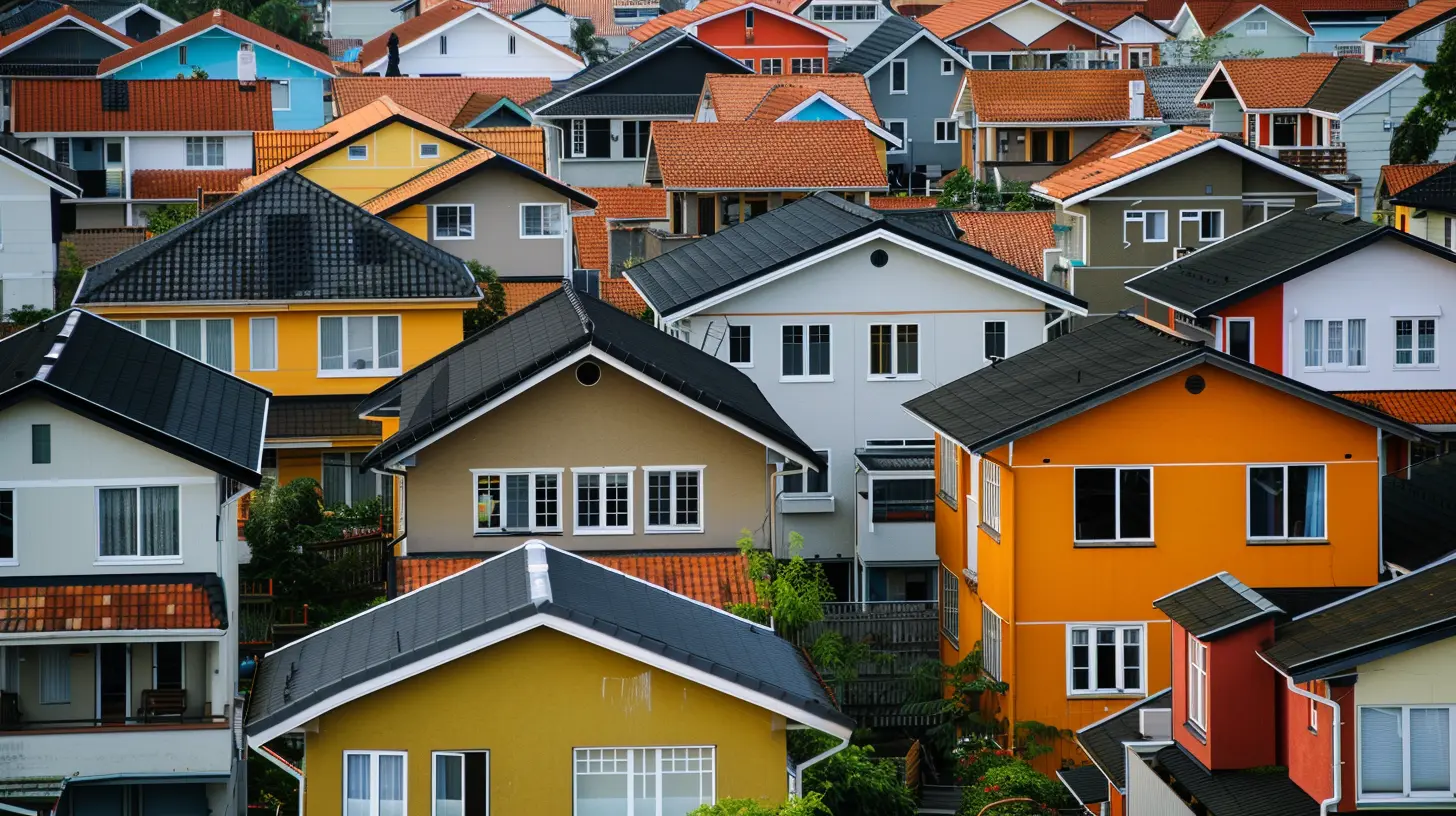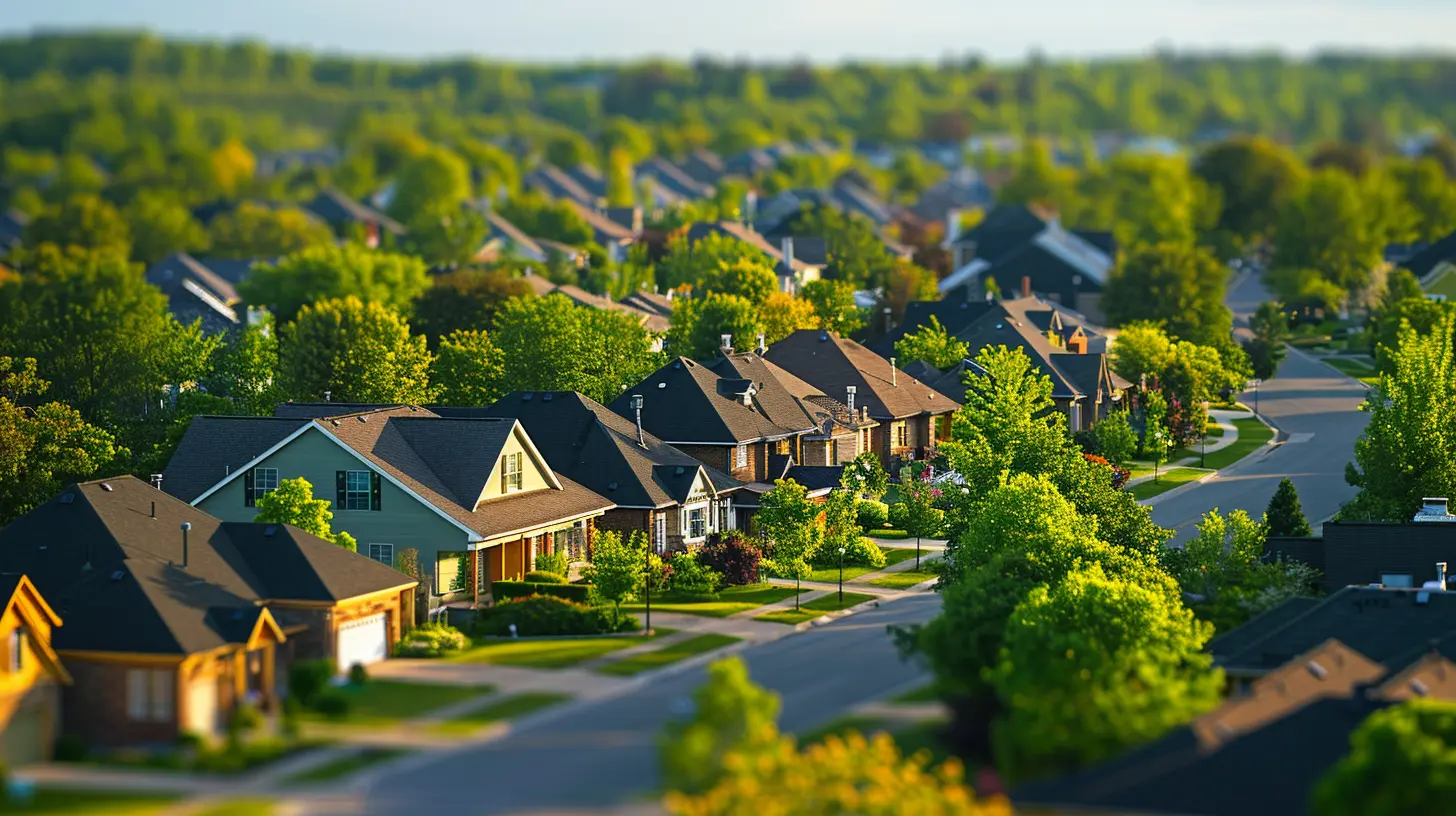How Population Shifts Are Impacting Local Housing Markets
13 November 2025
The real estate market has always been a wild rollercoaster ride, but lately, population shifts have thrown in some unexpected twists and turns. People are packing their bags, chasing new opportunities, and reshaping the housing landscape as they go. Whether it's the mass exodus from overpriced cities or the sudden boom in suburban and rural areas, these shifts are shaking things up in a major way.
So, what exactly is happening, and more importantly, how is it affecting local housing markets? Buckle up—this is going to be a ride filled with skyrocketing home prices, bidding wars, and some serious real estate drama.

The Great Migration: Why Are People Moving?
First things first—why are people suddenly on the move like never before? Several factors are in play, and they all intertwine like a complicated real estate love triangle.1. Work-From-Home is the New Normal
Gone are the days when people had to live within commuting distance of their offices. Remote work has freed workers from the shackles of city life, making it possible to live wherever their hearts (and budgets) desire. Small towns, countryside retreats, and coastal gems are now fair game.2. Big Cities Are Losing Their Shine
The allure of big-city life is fading, especially when rent prices are sky-high and quality of life is questionable. Many urban dwellers are realizing they can get more bang for their buck elsewhere. Why pay $3,000 for a cramped apartment in New York when you can own a four-bedroom house in Texas for the same price?3. Cost of Living is a Major Factor
Inflation is hitting hard, and people are seeking refuge in areas where their money stretches further. Housing costs, state taxes, and general affordability are driving migration patterns in ways we've never seen before.4. Climate Change and Natural Disasters
Wildfires, hurricanes, floods—you name it. Climate change is forcing homeowners to rethink their living situations. States like Florida and California, which were once prime real estate hotspots, are seeing people leave in search of safer (and less disaster-prone) regions.
How These Population Shifts Are Reshaping Housing Markets
Now that we know why people are moving, let’s talk about the ripple effect it's having on housing markets across the country.1. Housing Demand is Exploding in Certain Areas
Some cities that weren’t even on the radar five years ago are now real estate gold mines. Cities like Boise, Nashville, and Austin have seen their housing markets boom as newcomers flood in. Bidding wars are the norm, and homes are flying off the market faster than you can say "sold."2. Home Prices Are Skyrocketing
With demand outpacing supply, home prices are surging in the most desirable relocation spots. A home that would have sold for $250,000 five years ago might now be pushing $400,000 or more. And forget about negotiating a deal—buyers are offering well over asking prices just to get a slice of the action.3. Rental Markets Are Feeling the Heat
Buying isn't the only market getting hotter—rentals are also seeing price hikes. With so many people relocating, landlords are taking full advantage of increased demand. Cities that were once affordable are now seeing rents jump to uncomfortable levels, making it tough for long-time residents to keep up.4. Some Local Markets Are Struggling with Supply Issues
Some communities simply weren't prepared for this sudden influx of residents. Builders can’t pump out new homes fast enough, leading to housing shortages that drive up costs even further. In many cases, zoning laws and building regulations are slowing down new developments, making things even worse.5. Housing Markets in Big Cities Are Cooling Off
It’s not all chaos and price hikes—some areas are actually seeing the opposite effect. Cities like San Francisco and Chicago are experiencing a decline in housing demand as more people flee to suburban and rural areas. Home values in these cities are stagnating, and landlords are struggling to fill rental vacancies.
The Winners and Losers of This Population Shift
Not all housing markets are benefiting equally from this reshuffling. Some areas are booming, while others are left wondering what happened.🔥 The Winners: Boomtowns and Affordable Cities
- Austin, TX – Tech companies are setting up shop, and the housing market is on fire.- Boise, ID – Once a hidden gem, now a top destination for new residents.
- Tampa, FL – Sunshine, beaches, and no state income tax? Sign me up!
- Phoenix, AZ – Attracting remote workers and retirees alike.
- Nashville, TN – A mix of affordability and entertainment culture is bringing in droves of newcomers.
❄️ The Losers: Overpriced and Overcrowded Cities
- San Francisco, CA – The exodus is real. Tech workers are moving to more tax-friendly states.- New York, NY – High rent, high taxes, and strict COVID-19 restrictions pushed people out.
- Los Angeles, CA – Rising crime rates and cost of living are making people think twice.
- Chicago, IL – More people are leaving than moving in, creating vacant properties.
- Seattle, WA – Tech workers now have the option to live elsewhere, and many are choosing to do so.

What Does This Mean for Buyers and Sellers?
For Homebuyers
If you're looking to buy a home, brace yourself—it’s a competitive jungle out there. Expect bidding wars, above-asking price offers, and a market that moves faster than ever. If you're considering relocating, do your research on market trends and property values before making a move.For Sellers
This is your time to shine! If you're in a hot housing market, you could cash in big time. However, if you're selling in a cooling market, be prepared for price negotiations and longer listing times. Market conditions will vary depending on location, so keep a pulse on local trends before making decisions.The Future of Housing Markets Amid Population Shifts
So, what happens next? Will these migration patterns continue, or will things eventually stabilize? While it's impossible to predict with absolute certainty, here are some possibilities:- More Investment in Suburbs & Small Towns – Developers are already eyeing the next big hot spots, which could lead to further suburban expansions.
- More Affordable Housing Initiatives – Cities struggling with affordability may push for new policies to keep housing within reach.
- Changing Work Cultures & Real Estate Trends – If remote work continues, people will have even more freedom to choose where to live.
Either way, the real estate landscape is evolving, and staying informed is the best way to navigate these shifts—whether you're buying, selling, or just watching from the sidelines.
Final Thoughts
Population shifts are shaking up local housing markets in ways we’ve never seen before. Some areas are thriving, while others are struggling to keep up with the changes. Whether you're a homeowner, a renter, or an investor, one thing’s for sure—the real estate game is changing, and those who adapt will come out on top.So, if you’re thinking about making a move, now might just be the time. Just be ready to compete, strategize, and maybe even throw in an extra offer letter (or ten). After all, in this market, fortune favors the bold!
all images in this post were generated using AI tools
Category:
Housing MarketAuthor:

Kingston Estes
Discussion
rate this article
1 comments
Nancy Morgan
Population shifts significantly influence local housing markets, driving demand and altering price dynamics. Areas experiencing an influx see increased competition and rising prices, while regions losing residents may face declining values and oversupply. Understanding these trends is crucial for buyers and investors alike.
November 16, 2025 at 5:24 AM

Kingston Estes
Thank you for your insightful comment! You’ve captured the essence of how population dynamics shape housing markets, highlighting the importance for buyers and investors to stay informed.


